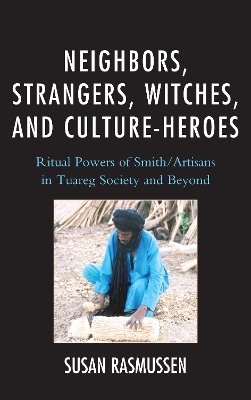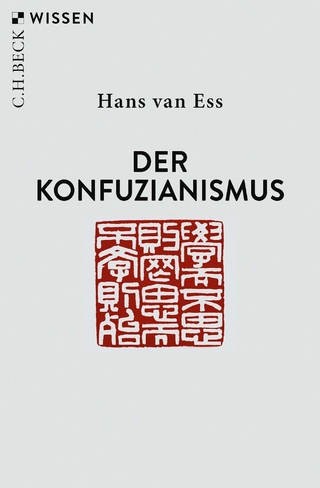
Neighbors, Strangers, Witches, and Culture-Heroes
University Press of America (Verlag)
978-0-7618-6148-5 (ISBN)
This book examines alleged “superhuman” powers predominantly associated with smith/artisans in five African societies. It discusses their ritual and social roles, mythico-histories, symbols surrounding their art, and changing relationships between these specialists and their patrons. Needed but also feared, these smith/artisans work in traditionally hereditary occupations and in stratified but negotiable relationships with their rural patron families. Many of them now also work for new customers in an expanding market economy, which is still characterized by personal, face-to-face interactions. Rasmussen maintains that a framework integrating anthropological theories of witchcraft, alterity, symbolism, and power is fundamental to understanding local accusations and tensions in these relationships. She also argues that it is critical to deconstruct and disentangle guilt, blame, and envy—concepts that are often conflated in anthropology at the expense of falsely accused “witch” figures. The first portion of this book is an ethnographic analysis of smith/artisans in Tuareg society, and draws on primary source data from this author’s long-term social/cultural anthropological field research in Tuareg (Kel Tamajaq) communities of northern Niger and Mali. The latter portion of the book is a cross-cultural comparison, and it re-analyzes the Tuareg case, drawing on secondary data on ritual powers and smith/artisans in four other African societies: the Amhara of Ethiopia, the Bidan (Moors) of Mauritania, the Kapsiki of Cameroon, and the Mande of southern Mali. In the concluding analysis, there is discussion of similarities and differences between these cases, the social consequences of ritual knowledge and power in each community, and their wider implications for anthropology of religion, human rights, and African studies.
Susan Rasmussen is professor of anthropology in the Department of Comparative Cultural Studies at the University of Houston. Her interests include anthropology of religion, medico-ritual healing and healing specialists, gender, and aging and the life course. She is also interested in rural and urban artisans, verbal art performance, ethnographic analysis, culture theory, and African humanities. She has published four books and many articles based on data from her long-term field research in Tuareg communities of northern Niger and Mali, and more briefly among Tuareg and other Berber (Amazigh) expatriates, immigrants, and travelers in France and the United States.
Preface
Acknowledgments
Introduction
Chapter 1 Tezma Power and Tuareg Inaden Smith/Artisans
Chapter 2 Inaden Origins, Histories, and Professional Practices
Chapter 3 Powers, Tensions, and Mediations
Chapter 4 Q’alb Power and Amhara Buda/Tayb Smith/Artisans
Chapter 5 Echar Power and Bidan M’Allemin Smith/Artisans
Chapter 6 Beshengu Power and Kapsiki Rerhe Smith/Artisans
Chapter 7 Nyama Power and Mande Nyamakala Smith/Artisans
Conclusions
Bibliography
Index
Author Biography
| Verlagsort | Lanham, MD |
|---|---|
| Sprache | englisch |
| Maße | 159 x 239 mm |
| Gewicht | 386 g |
| Themenwelt | Geisteswissenschaften ► Religion / Theologie ► Weitere Religionen |
| Sozialwissenschaften ► Ethnologie | |
| Sozialwissenschaften ► Soziologie | |
| ISBN-10 | 0-7618-6148-3 / 0761861483 |
| ISBN-13 | 978-0-7618-6148-5 / 9780761861485 |
| Zustand | Neuware |
| Haben Sie eine Frage zum Produkt? |
aus dem Bereich


